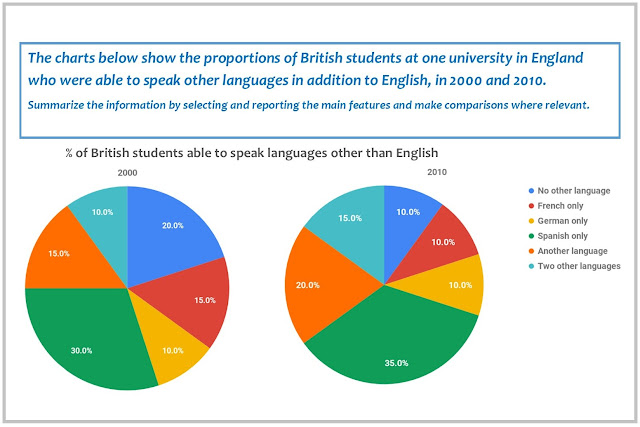Use it or lose it. On forgetting vocabulary.
My strong recommendation is: always assume you might forget any vocabulary at any time. With this in mind, take the steps below to prevent vocabulary loss.
Part 1. Lay the groundwork.
Step 1. Record the word.
Write it down in your notebook or on an old receipt. Type it. Repeat the word out loud five times. Record the word in some form. If you don’t, consider it gone.Step 2. Explore the word.
A. When I said, “Record the word,” I actually meant, “Record the whole phrase or sentence that the word was used in.” The words around your target word will help you recall it when you need it.B. Don’t stop at that. Use English-English dictionaries, collocations dictionaries, a corpus or Youglish to record even more phrases or collocations with the word.
Your record of the word might look something like this:
It will revolutionize...
- our understanding of
- the way we / you / people (do sth)
- the production and use of
- your business
- entire industries
- your life / our lives.
Step 3. Write your own examples.
My example for revolutionize might be “I hope this post will revolutionize the way you treat vocabulary.” Ideally, your examples should be meaningful, natural, and relevant to you. They shouldn’t be a generic phrase like “This machine will revolutionize the world.” Abstract examples (what machine are you talking about?) are less likely to stick.
If such situations don’t occur naturally, create them. Join or start a speaking club. Write. You don’t need to write something perfect or creative. Write something - morning pages, a diary, a paragraph, an essay, or messages to your fellow learners/colleagues.
Part 2. Use it or lose it.
Laying the groundwork helps you remember vocab but doesn’t guarantee it. Producing it does. If you forget vocabulary, I bet you either don’t produce any English (don’t speak or write) or produce the same thing over and over again (e.g. you are an English teacher who teaches the same level with the same coursebook and doesn’t do any speaking or writing outside of that). All you need to do is produce as much English as you can.Step 1. Create.
To produce more English, you need situations which will help you do that (well, duh!).If such situations don’t occur naturally, create them. Join or start a speaking club. Write. You don’t need to write something perfect or creative. Write something - morning pages, a diary, a paragraph, an essay, or messages to your fellow learners/colleagues.
Step 2. Prepare and produce.
Situations in which you produce English spontaneously help, but you also need to help yourself.First, identify the lexical items you want to work on. They can be new words, rare patterns, or old words you think you’ve undeservedly neglected. Then create a vocabulary list. When you find yourself in those speaking or writing situations, put your vocabulary list in front of you and wait for an opportunity to use them. Believe me, it will arise. If it doesn’t, make it arise. At first, you might have to inject your target phrases into your speech artificially, for the sake of practice. With time, you will move on to using words naturally, without forcing yourself to.
It certainly helps to discuss and create vocabulary lists based on articles or videos because the context is there for you. Speaking/writing situations in which you don’t have any vocabulary lists help too, but if you join a speaking club and never do any preparation, you might end up not recycling or learning anything.
Case study.
This blog is a writing situation I created for myself. You don’t know it, but I often inject phrases in my text on purpose, just because I want to work on them. By the way, the phrases I am working on in this particular post are in bold.Such phrases usually complete the following journey:
I hear a phrase >> I write it down in my notebook >> I thumb through my notebook or rummage in my brain choosing some phrases I want to recycle >> I bend over backwards to find the right context for them until I do >> The text goes through several revisions (I read it at least 10 times) >> The phrases remain engraved on my memory.
If you stop at the first two stages, it's not surprising you forget vocabulary.
Now think about it this way. You might forget somebody’s name if you have met them once. But you will never forget your best friend’s name for one simple reason - you have read / pronounced it hundreds of times in meaningful, natural, and relevant contexts. Vocabulary works more or less the same way. You will never forget words you have dealt with thoroughly.
Keeping your vocabulary alive and kicking takes work and dedication. So whenever you find yourself forgetting a word, ask yourself, “Have I done what it takes not to forget it?” If the answer is “Not really,” just do it.
PS: Curiously, I hear teachers complain about forgetting vocabulary more often than students. Why? For one thing, teachers think they are immune to student problems. They aren't. The second reason might be that teachers are less disciplined because there is no authority over them. The bottom line is teachers have to work just as hard as students.





True, english language has tens of thousands of words, but at leas in the US people's vocabulary rarely exceeds 10,000 words, and the average may be even lower.
ReplyDeleteHowever to learn and master true english people indeed need to work a lot on vocabulary as well as understand the right context to use some words, also learn as many synonyms as possible!
10,000 is huge for a non-native speaker. Even 5,000 takes years to learn and maintain. So, yep, work, work, work!
Delete